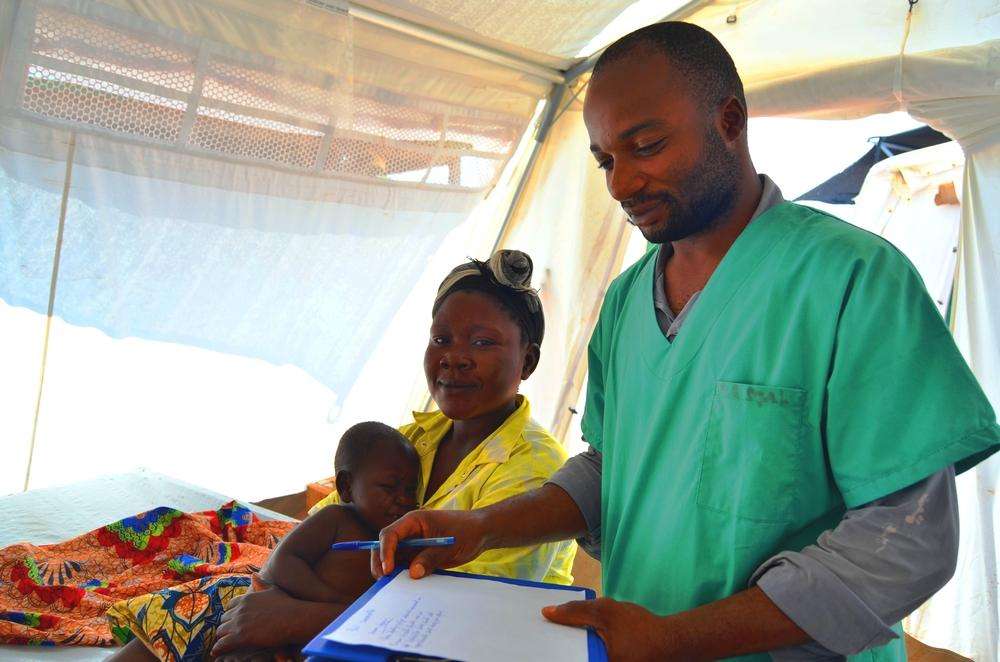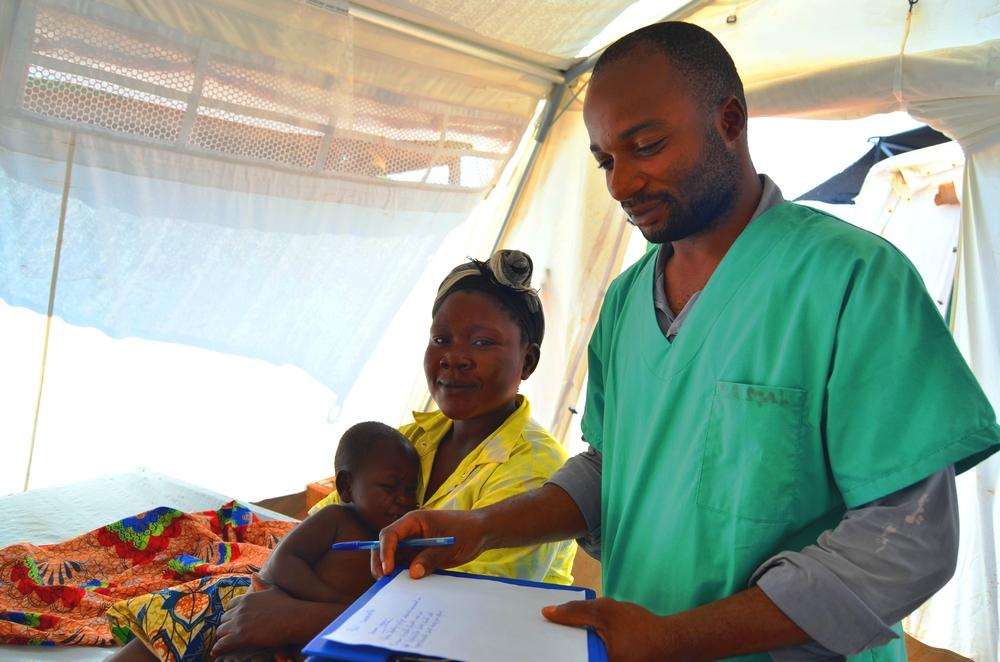On December 2, 2013, Doctors Without Borders/Médecins Sans Frontières (MSF) received an alert from the Provincial General Hospital of South Kivu in Bukavu. The day before, 30 people had been admitted to the cholera treatment center (CTC) and one person had already died.
The MSF emergency team immediately went to the center and found it completely overwhelmed. Ninety percent of the cases had come from a district of the city called Camp Mweze, where the community had already reported four more deaths possibly caused by cholera originating from a contaminated water source.
During the intervention that followed, MSF treated 690 people—including156 children under the age of five. The MSF team expanded the CTC's capacity, strengthened diagnosis and treatment of patients, ensured the availability of materials necessary for containing the disease, and increased awareness activities in the community to halt further transmission.
Cholera causes vomiting, diarrhea and severe dehydration. If not treated quickly the mortality rate is very high. However, the treatment is very effective and relatively simple: it consists of rehydrating the patient, and, depending on the severity of the case, hospitalization time can vary from six hours to four days. The key to successful cholera interventions is properly isolating patients in order to prevent the disease from spreading.
“South Kivu is a cholera-endemic area. But in Bukavu, a city of one million inhabitants on the banks of Lake Kivu, there are also many factors favoring the spread of the disease," explains Juan Matías, coordinator of MSF’s emergency teams in DRC. "A large part of the population doesn’t have access to good quality water due to the poor infrastructure; the rainy season, which is when the disease spreads, lasts for nine months; and the hygiene habits of the population are not adequate. That’s why it’s very important to work with the community to contain and prevent new outbreaks of cholera.”
The last cholera epidemic in Bukavu was in 2011 and an MSF team responded with a rapid intervention on that occasion as well. This one was carried out in collaboration with staff from the Congolese Ministry of Health. It lasted six weeks, ending only after three weeks during which staff could see cholera cases returning to normal endemic levels.
This is the sixth intervention carried out by the MSF emergency team in South Kivu in 2013. The team previously tackled two other cholera epidemics (in Kamanyola and Uvira), a malaria emergency in Lulingo, and two measles emergencies, one in Kitutu and another in Bunyakiri, which included a vaccination campaign for 65,000 children.





